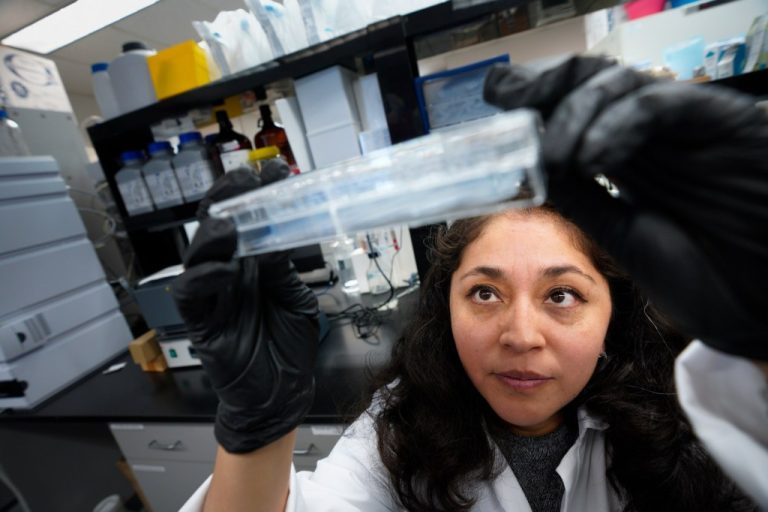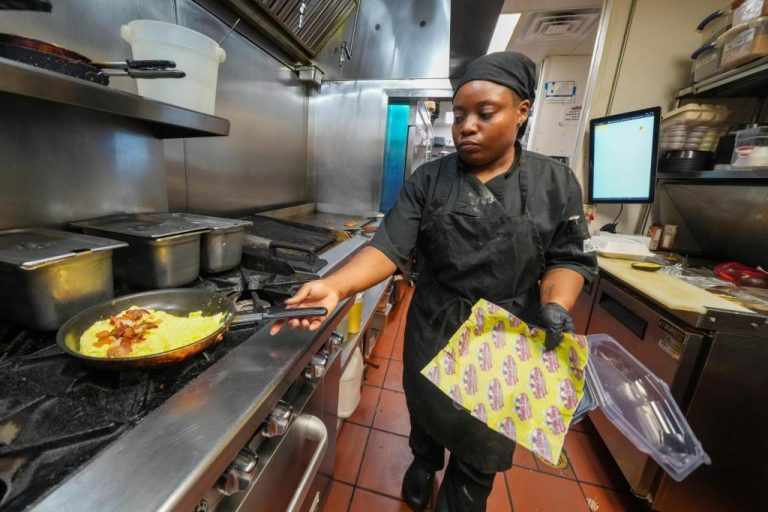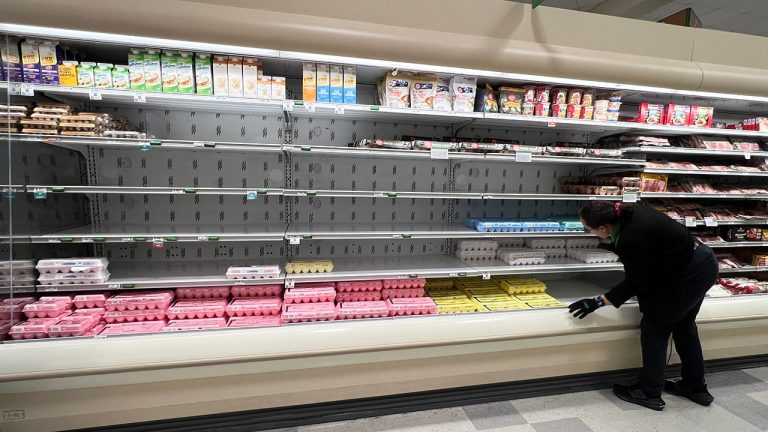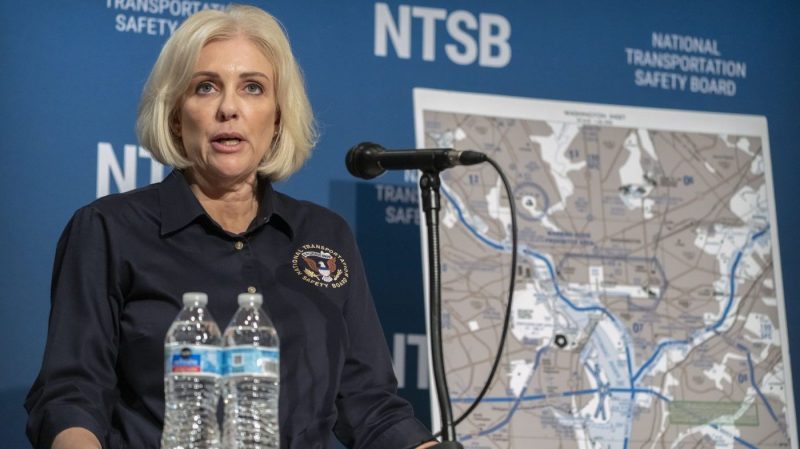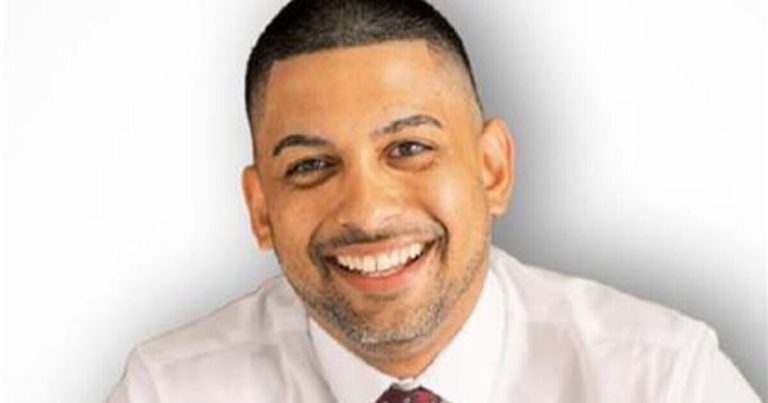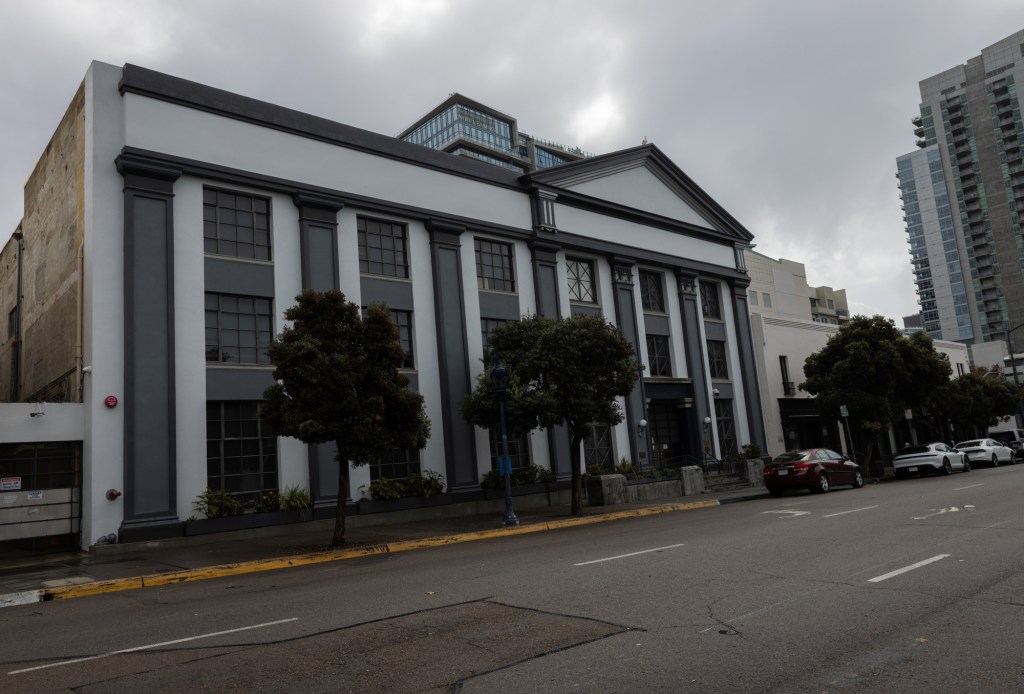

San Diego is turning a downtown office building into a shelter for hundreds of women and children, significantly boosting capacity within a homelessness services system that regularly runs out of space.
The board of the San Diego Housing Commission voted unanimously Friday to convert the structure into a 210-bed facility. The Rachel’s Promise Center for Women and Children will be overseen by Catholic Charities, a nonprofit that already operates a smaller version of the same program.
The existing Rachel’s Promise shelter, which has 40 beds downtown, is set to close this summer to make way for new development.
Proponents praised the supportive services that should accompany the center. “The question is not, ‘is it better than the alternative?’” Ryan Clumpner, the board’s vice chair, said from the dais. “The question is, ‘are we moving people out of homelessness into housing?’”
Friday’s vote was unrelated to the San Diego City Council’s decision earlier in the week to explore converting a different downtown office building into shelter. That proposal still needs a final green light and could be a year or more from completion.
The new Rachel’s Promise facility will be located a few blocks north of Petco Park at 733 Eighth Ave., records show. Fifty beds for single women should open in March, a number that can increase to 109 once additional bathrooms and showers are added. Some spots are for older adults, while the remaining 101 beds will be for children and their mothers.
The structure has a mix of congregate areas, which are generally large spaces lined with beds, and more private rooms. Bunk beds will only be used for kids, as older and disabled adults may be unable to climb ladders, officials said. The supportive services should include case management, therapy and life skills classes.
The commission agreed to spend almost $1.7 million to renovate, launch and run the center 24 hours a day, 7 days a week for the next several months. After that, officials will need to re-approve the program each year at an annual cost of more than $5 million.
Said another way, the price tag for each bed is about $68.75 per night. That’s a lower rate than some city shelters.
Leaders said there’s enough money in San Diego’s general fund to start out, but the City Council will eventually need to budget more if the facility is to stay open. That funding is far from guaranteed. Council members are wrestling with a budget deficit worth around a quarter-of-a-billion dollars and some have called for overhauling the city’s entire homelessness budget.
One thing is known: There is nowhere near enough shelter for everybody asking.
Last month, there were more than 2,200 requests for a bed, according to Casey Snell, a senior vice president at the commission. Yet only 287 of those referrals succeeded, mainly because facilities were full or the available spots — like top bunks — were inaccessible.
That 13 percent success rate was actually an improvement over December, when just a tenth of all requests ended with somebody getting a bed. This has long been the reality. People have asked for shelter more than 14,000 times since the start of the fiscal year in July, yet fewer than 1,800 were successful.
Outreach workers have also said the need for family shelters is especially pronounced. In 2020, women and girls made up less than a third of everyone served by city homelessness programs, officials said. By last year, that share had increased to about 42 percent.
“This new shelter program is a significant step forward in addressing the growing needs of unhoused women and women with children in our community,” Vino Pajanor, Catholic Charities CEO, said in a statement.
The building that will host the Rachel’s Promise center is owned by Oliver McMillan Eagles Hall, a limited liability company. Catholic Charities pitched the program after the housing commission sent out an open call for shelter proposals. The agency has so far received five responses, and it’s possible others may be considered down the line.


